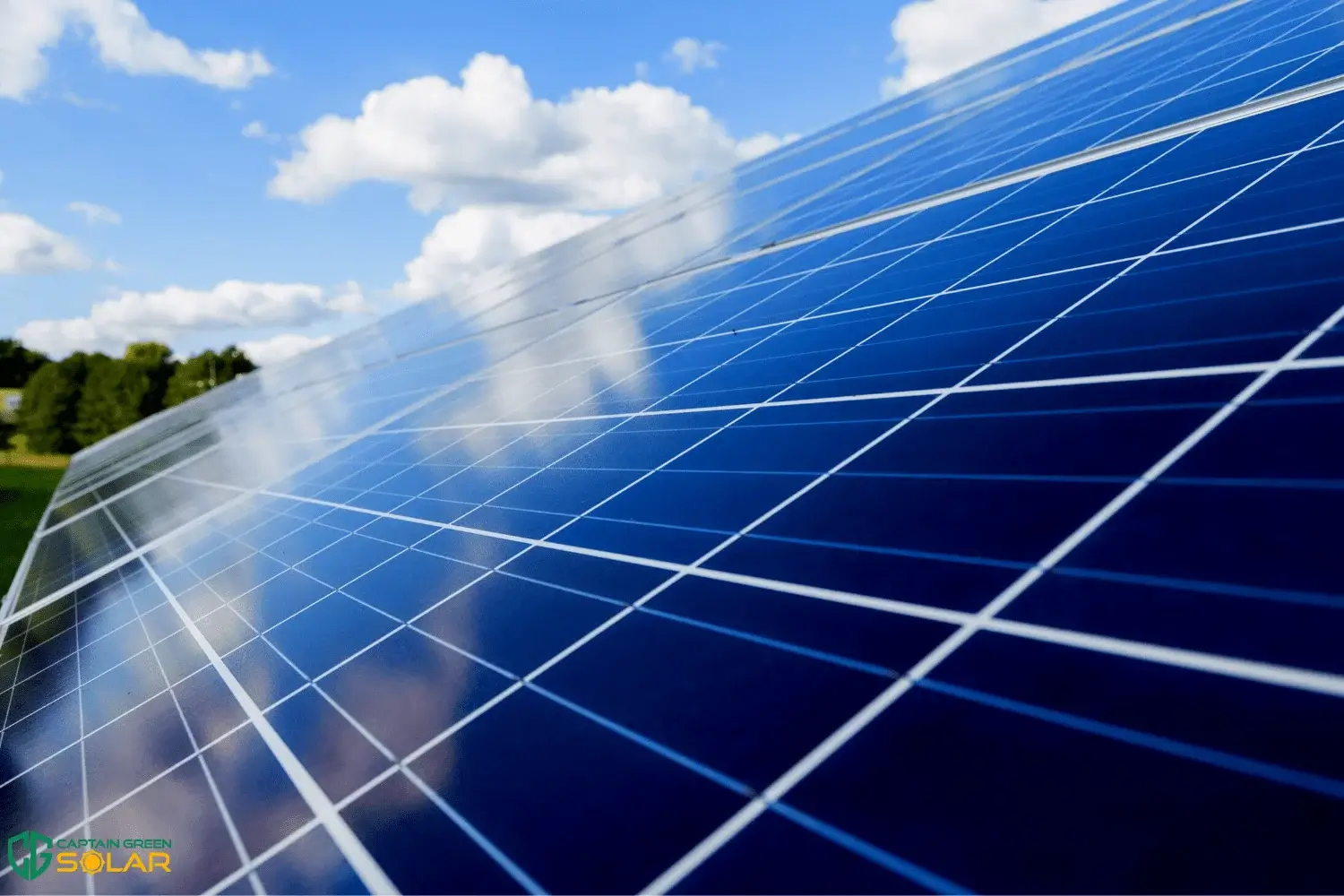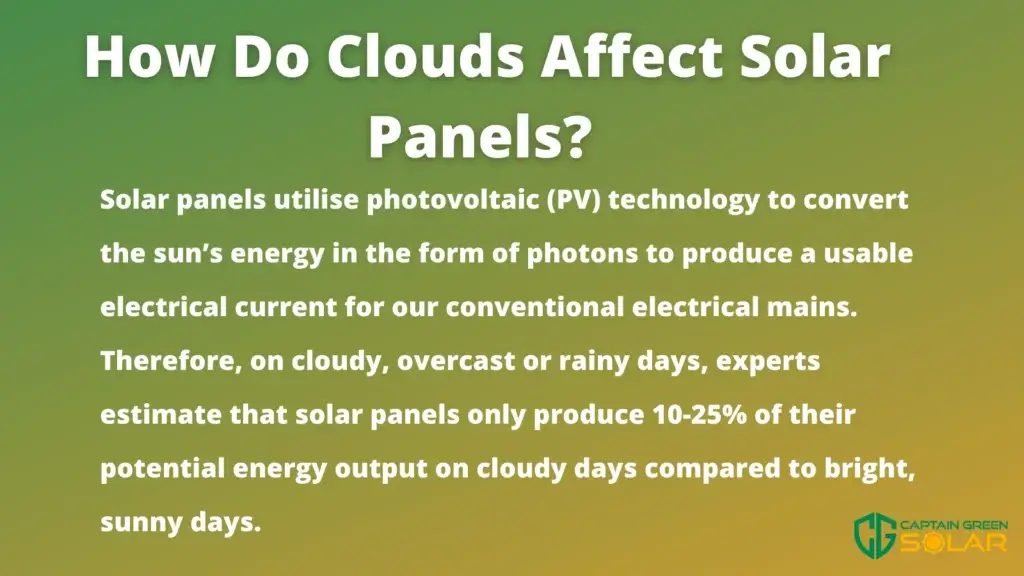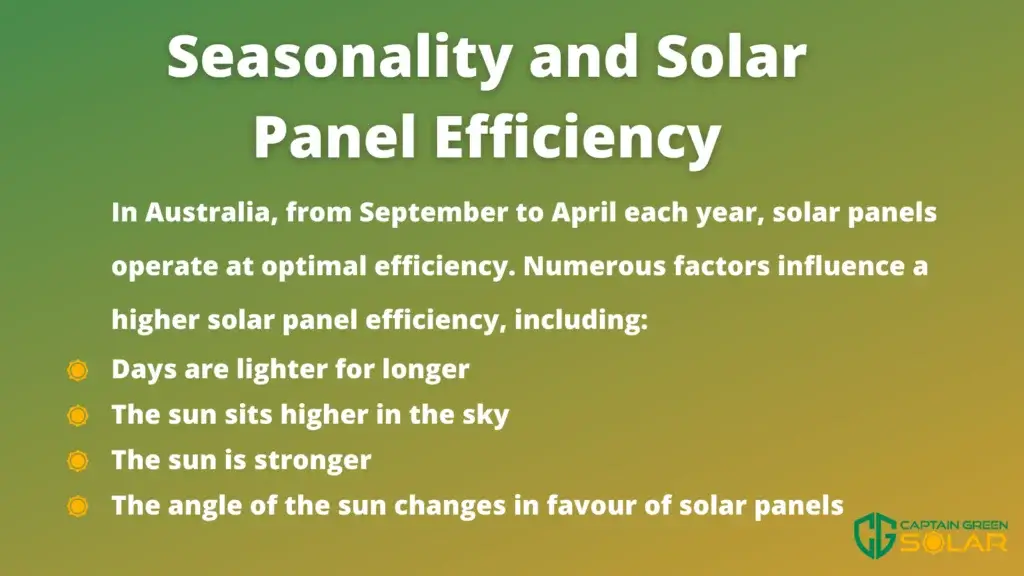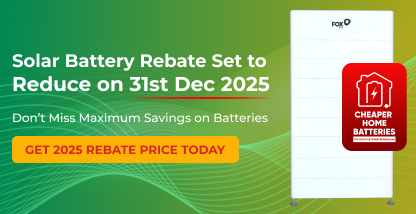ENTER YOUR POSTCODE TO UNLOCK SPECIAL

There’s no doubt about it – the weather can play a massive role in the energy output of solar panels. Frustratingly, cloud cover and other weather conditions are entirely out of our control. However, this doesn’t mean that prospective customers should shut down the idea of solar panel installation. The best solution to solar panel efficiency on cloudy days are solar batteries. But we’ll explore solar efficiency solutions in more detail later.
At Captain Green, we are committed to designing and installing highly efficient solar panels to Australian commercial and residential premises. We want our clients to have a great experience with the solar panels that we install to devote ourselves to renewable energy solutions collectively. Theoretically, the sunlight that penetrates the ozone layer across the planet in a single day provides enough energy to generate power across the world for an entire year. But the question remains; do solar panels work on cloudy days?
So, how do clouds affect solar panels? Solar panels utilise photovoltaic (PV) technology to convert the sun’s energy in the form of photons to produce a usable electrical current for our conventional electrical mains. Therefore, on cloudy, overcast or rainy days, the amount of photovoltaic (PV) energy converted from sunlight is decreased. Before we can understand how do clouds affect solar panels, let’s first look at solar panel regular efficiency to compare this to cloudy days.

Around a decade ago, solar panels were operating at around 11% efficiency. Solar panel efficiency has improved significantly within the past ten years, running at 17-19% in 2021. As innovative technology within the solar industry continues, we expect the efficiency to rise considerably in the forthcoming years. Although it may not be the first factor that comes to mind when considering, “how do clouds affect solar panels?”, solar panel efficiency will determine the level of output the solar panel produces on a cloudy or overcast day. By investing in the most efficient solar panels, you can maximise the production of the solar board significantly across its lifespan. At Captain Green, we stock the best solar panels in Australia. The solar panels we have at Captain Green Solar are industry-leading performance, boasting module efficiency exceeding 20%.
It’s one of the most common questions our installers receive; “do solar panels work on cloudy days?”. Solar panels do still work on cloudy, overcast or rainy days. However, as expected, solar panels are less efficient on overcast days. Experts estimate that solar panels only produce 10-25% of their potential energy output on cloudy days compared to bright, sunny days.
When considering how much do clouds affect solar panels, the answer isn’t that black and white. There are other factors to consider. For example, the level of cloud cover will determine how much the solar panel efficiency suffers. A primarily cloudy but sunny day will still provide excellent UV penetration and, therefore, increase the solar panel’s efficiency to somewhere near the same efficiency as a regular bright and sunny day. The sun can penetrate clouds on an overcast day and have little to no impact on solar panel efficiency. The answer to the question, “how do clouds affect solar panels” is that it does depend on the day and, unfortunately, many factors beyond our control.
When understanding how do clouds affect solar panels, it’s essential to look at solar panel efficiency when it’s raining. Similarly, to a high amount of cloud cover, rain can decrease the solar panel’s energy output. The solar panel will still function; however, it will be at a much lower capacity when compared to a bright, sunny and clear day.
Now that we’ve covered how do clouds affect solar panels, let’s explore the ultimate conditions where solar panels can thrive and produce the highest amount of energy. Many of our customers believe that sweltering temperatures will provide the maximum output for their solar panels. Whilst it is true that direct, consistent sunlight throughout the day will lead to the most efficient solar energy output, solar panels don’t perform well in extreme heat. Extreme heat will impact the performance of the solar panel in a negative way. The ideal weather for solar panel efficiency is a cooler temperature with high sun exposure and bright, sunny weather. Solar panels love direct sunlight from the sun when directly above and high in the sky without any cloud coverage.
The optimal time of day for solar panel efficiency is crucial to consider when understanding how do clouds affect solar panels efficiency. Solar panels are most efficient when the sun is at the highest point in the sky, which typically falls between 10 am – 2 pm, with noon being the peak of solar energy output. If cloud cover clears throughout the middle of the day, it’s likely that the direct sunlight will allow the solar panel to be as efficient as a typical bright and sunny day. The optimal time of day for solar panel efficiency will also depend on the angle to which the solar panels are adjusted. Be sure to discuss the positioning of the solar panels with the installation expert.

For those wondering, “how do clouds affect solar panels?”, it’s important to consider seasonality. Summer months produce the most efficient amount of energy. Experts estimate that solar panels produce about 40-60% less energy throughout winter than in summer, depending on the solar panel quality, age, and geographical location of the solar panel.
In Australia, we are fortunate to have a climate with the highest amount of sunlight and solar penetration per square metre on the continent. Therefore, from September to April each year, solar panels should operate at a decent efficiency. Numerous seasonal factors influence a higher solar panel efficiency from Spring to Autumn, including :
Now that we’ve considered how much do clouds affect solar panels let’s talk about the ultimate solution to solar power management on cloudy days: solar batteries. Solar batteries store excess energy produced by the solar panels throughout the day.
Solar energy storage solar means that the entire household or building can access free and renewable power when the sun is gone, such as throughout the night. Also, solar batteries work as a short term back up for the house or commercial property if there is a widespread power outage. Solar batteries work to extend the use of your solar system’s generated energy and are a wise investment for anyone installing solar panels.
Solar batteries are a long term investment, lasting from 10-15 years. Ultimately, they can reduce energy bills as you are required to draw less and less energy from the grid when solar power is unavailable. Solar batteries should be one of the first purchases by anyone considering installing solar panels but wondering, “how do clouds affect solar panels?”.
So, what’s the verdict? Do solar panels work on cloudy days as efficiently as they do on days filled with sunshine? Technically, they don’t operate at the same efficiency. However, there are ways in which you can improve the efficiency of your solar panels on a cloudy or overcast day. Solar batteries collect and store energy created by a solar PV system and act as a backup for your solar panel energy storage on cloudy days and throughout the winter months.
At Captain Green, our experienced team have installed over 250,000 solar panels across Australia. We’re passionate about renewable energy and helping our customers with the best solution for their solar power journey. Talk to one of our experts today on 1300 361 682 and receive a customised quote for setting up your solar panels.

Captain Green Solar is one of the Top Solar Companies in Australia. Established in 2010, we are the Trusted Name in Solar for over 14 Years!

Captain Green Solar is one of the Top Solar Companies in Australia. Established in 2010, we are the Trusted Name in Solar for over 14 Years!

Battery Rebate Set to Reduce on 1st May 2026
Don’t Miss Maximum Savings on Batteries
Time left until rebate reduces

